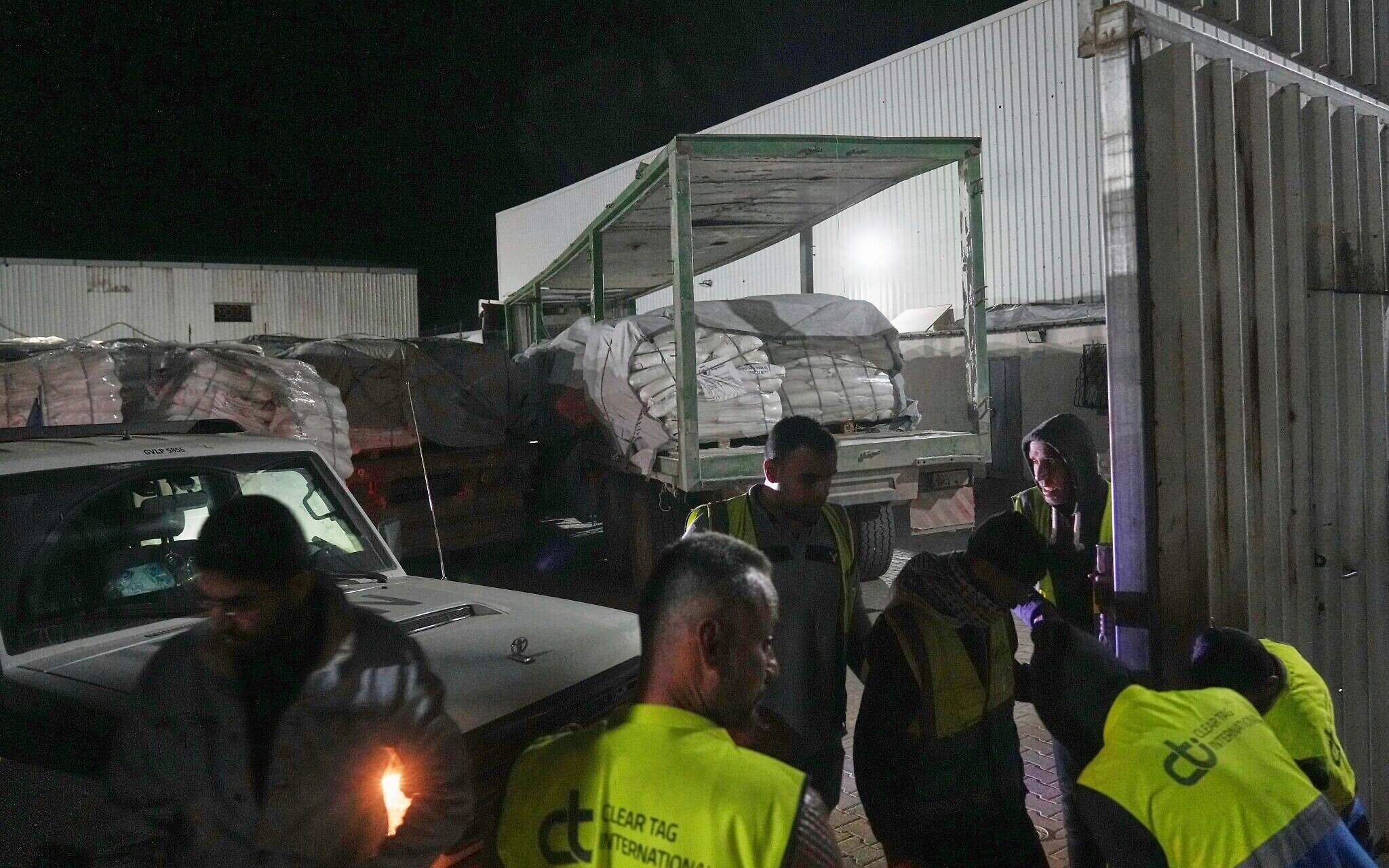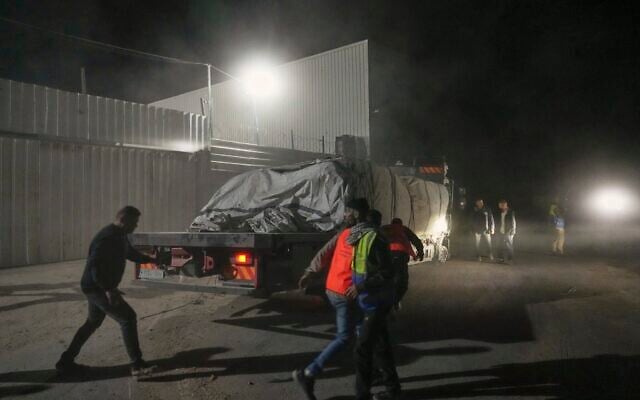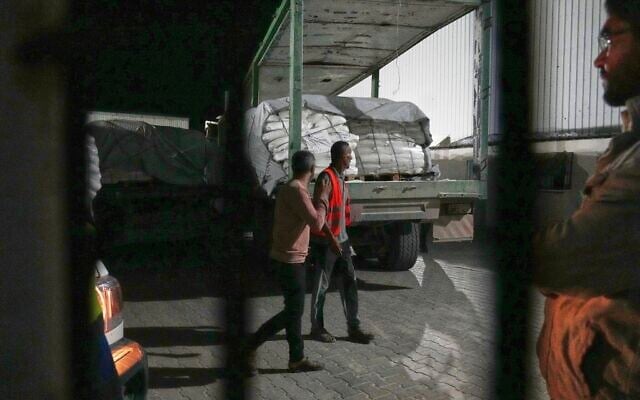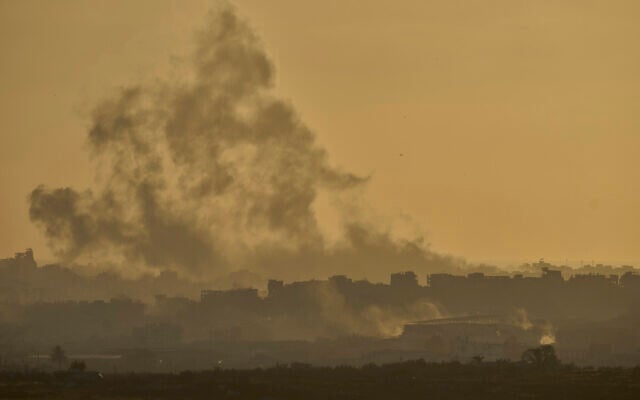



The United Nations on Wednesday confirmed that it collected and began distributing around 90 truckloads of aid into Gaza, marking the first aid distribution in the besieged coastal territory since early March, after UN officials claimed they were unable to pick up supplies at the border with Israel.
Three days after Israel announced it would allow in limited aid, the United Nations on Wednesday “collected around 90 truckloads of goods from the Kerem Shalom crossing and dispatched them into Gaza,” Stephane Dujarric, spokesman for UN Secretary-General Antonio Guterres, said in a statement.
The Defense Ministry’s Coordinator of Government Activities in the Territories (COGAT) earlier announced that 100 trucks carrying humanitarian aid entered the Gaza Strip on Wednesday. COGAT said the aid delivery came “following the recommendation of professional IDF officials and in accordance with the directive of the political echelon.”
The trucks contained flour, baby food and medical equipment, according to COGAT.
The aid underwent an inspection first by Israeli authorities before entering Gaza via the Kerem Shalom Crossing.
COGAT did not address the UN allegations that the IDF had prevented the collection of aid on the Gaza side of the border.
Nahid Shahaiber, a major transport company owner, said 75 trucks of flour and over a dozen more carrying nutritional supplements and sugar were inside the southern area of Rafah and witnesses said trucks carrying flour had been seen in Deir al-Balah in the central Gaza Strip.
Israel had blocked all aid from entering Gaza since March 2, arguing that sufficient humanitarian assistance had entered the Strip during a six-week ceasefire before that and that Hamas was stealing aid, with the blockade necessary to pressure the terror group to release the dozens of hostages it is holding.
In recent weeks, however, some officials in the IDF began warning the political leadership that the enclave was on the brink of starvation.
Under mounting international pressure, Israel allowed aid deliveries by the UN and other aid groups to resume briefly until a new US-backed distribution model using private contractors operating through so-called secure hubs is up and running by the end of the month. The UN, which has criticized the plan as neither impartial or neutral, will not be involved.
Also Wednesday, the Israel Defense Forces said three rockets were launched from northern Gaza, setting off sirens in the border communities of Zikim and Netiv Haasara.
All three projectiles fell short in Gaza, the army added.
No injuries were caused in the attack, after which the IDF’s Arabic-language spokesman issued evacuation orders for residents in parts of northern Gaza.
Over the weekend, the IDF launched a major new offensive dubbed “Gideon’s Chariots” launched over the weekend, which Israel says seeks to destroy Hamas and seize and retain the whole territory, while relocating Palestinians across the enclave.
On Tuesday, IDF chief Eyal Zamir threatened to ramp up the campaign even further if Hamas did not agree to Israel’s demands that it release the hostages and give up power.
“It will face intense firepower,” he said. “We will expand the ground maneuver, conquer additional territory, clear and destroy the terror infrastructure until it is defeated.”
Israel is seeking to pressure Hamas into freeing 58 hostages remaining in Gaza, about a third of whom are believed to be alive, and demands that the group relinquish power before ending the war.
On Tuesday, Prime Minister Benjamin Netanyahu recalled a high-level negotiating team from Doha, where talks on a ceasefire and hostage release deal appeared to be stuck.
Times of Israel staff contributed to this report.



